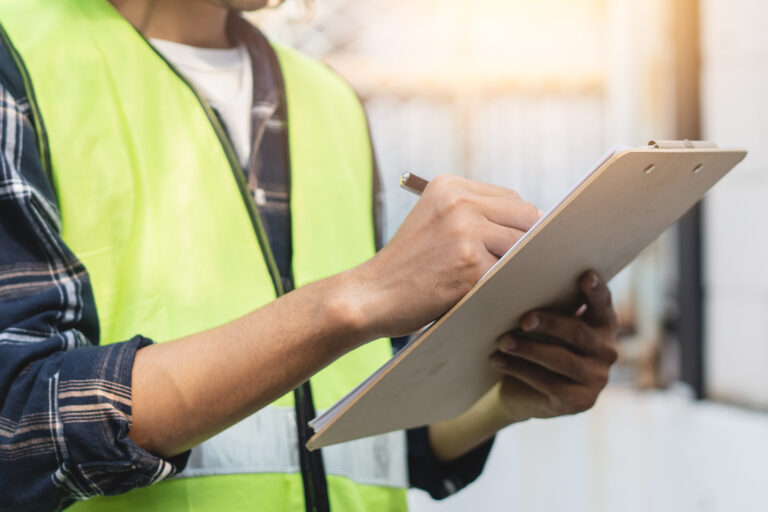Is that CFIA inspector at your food facility door really a CFIA inspector? In a May Tweet, the Canadian Food Inspection Agency (CFIA) stated that it has heard “reports of people posing as CFIA Inspectors to gain access to properties.”
There are any number of issues that can arise from non-authorized individuals entering the food plant. Not only could they be planning an “undercover” social media exposé – that would in all likelihood be inaccurately portrayed, they could be there to avenge a grudge or serve a personal agenda by adulterating your food. Or they could be a competitor seeking to discover your proprietary secrets.
The best way to protect yourself is to ask for identification. As the two-part CFIA tweet goes on to state, “Our Inspectors always carry their photo ID cards with a 5 digit number, and may also carry a metal badge. You have the right to require that our staff identify themselves and explain why they are contacting you.” In fact, if the inspector does not present photo ID when arriving at your plant for the first time, you have cause to be immediately suspicious, as identifying themselves and treating you in a “fair, respectful and unbiased manner” is a requirement of inspectors. Upon arrival, the inspectors next step should be to ask to speak with the person in charge (or the pre-identified contact), and explain the purpose of the inspection and any areas that may be of specific concern.
If any of this does not occur, be suspicious and, as the CFIA tweet also states, “If you are unsure, or suspect fraudulent activity, don’t hesitate to contact us or local authorities.”
To further detail your rights and responsibilities when interacting with the CFIA, the agency provides a number of webpages focused on CFIA interactions including a Statement of Rights and Service for Producers, Consumers and Other Stakeholders, with a section specifically focused on Your rights, and A Producer’s Guide to Canadian Food Inspection Agency (CFIA) Inspections. The guides provide information on the rights and responsibilities of both the CFIA and producers as well as inspection expectations.
Following is a compilation of key points:
- To collect and record information to verify compliance with the legal requirements, the inspector can ask to speak with the people involved, review records, collect samples, take photographs, and copy documents. The producer is legally required to provide the information to the inspector, and provide assistance, when requested.
- The inspector may look at (as applicable): animals, plants and their associated products; food (and take samples); product packages and labels; operations; and quality management systems.
- The inspector is authorized to access and copy certain records, including licences, registrations, permits and/or certificates; process or equipment information; operation log books; equipment maintenance records; sampling and testing results; other data or records required.
- Producers have the right to ask questions or clarification on any aspect of the inspection process; request copies of educational material, including relevant legislation and fact sheets; and receive information in English or French.
- Once the inspection is complete the inspector will relay any issues, such as a noncompliance or a suspected or detected disease or pest. They will then explain the next steps to be taken.
- The producer will receive an inspection report following the inspection or at a later date, depending on the time the inspector needs to finalize the results.
- Even after completion of the inspection, the producer may be asked for further information based on the inspector’s review of their notes and observations.
- If a serious issue is found, the inspector could: issue a corrective action request that requires the producer to correct the non-compliance within a certain timeframe; seize and detain a product; quarantine the place being inspected; order the destruction of animal or plant products; issue an Administrative Monetary Penalties (AMPs) Notice of Violation with Warning or Penalty; or refer the matter to Area Enforcement and Investigation Services for investigation and potential prosecution.
Following the inspection, the producer has additional rights, including the right to receive information in English or French and to:
- receive written documentation of both the reasons for the decisions, where practical or legally required, and the regulatory order, where applicable.
- discuss and seek clarification concerning their responsibilities.
- obtain information under the provisions of the Access to Information Act;
- have privacy protected, as set out by the Privacy Act;
- speak to a local CFIA office about the service, and/or contact the CFIA’s Complaints and Appeals Office to submit a formal complaint and seek redress through the courts.
In 2020-2021, the CFIA conducted or otherwise supported more than a million inspections for plant, food, and animal products. The arrival of a CFIA inspector can be stressful enough, but having to also wonder if that inspector is a fraud not only adds stress, but could be extremely dangerous for your products and workers. Thus, understanding the workings of CFIA and what to expect when you are inspected is the first step in ensuring a successful inspection – and a safe visit.





